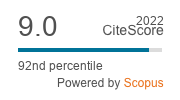Recent studies suggested that manipulation of the composition of the microbial ecosystem in the gut might be a novel approach in the treatment of obesity. Such treatment might consist of altering the composition of the microbial communities of an obese individual by administration of beneficial microorganisms, commonly known as probiotics. Here, we intend to contribute to the developmental process of probiotic treatment of human obesity. The aim is to review the evidence regarding the potential effect of probiotic strains on reduction of weight and body fat. A literature study was conducted focusing on clinical trials that examined the effect of specific microorganisms on body weight control. Analysis of the eligible articles pointed out that Lactobacillus gasseri SBT 2055, Lactobacillus rhamnosus ATCC 53103, and the combination of L. rhamnosus ATCC 53102 and Bifidobacterium lactis Bb12 may reduce adiposity, body weight, and weight gain. This suggests that these microbial strains can be applied in the treatment of obesity. Furthermore, short chain fatty acid production and low grade inflammation were found as the underlying mechanisms of action that influence metabolism and affect body weight. These findings might contribute to the development of probiotic treatment of obesity. Further research should be directed to the most effective combination and dosage rate of probiotic microorganisms.
Research-Article
The development of probiotic treatment in obesity: a review
M.C. Mekkes Related information
1 Athena Institute, VU University Amsterdam, De Boelelaan 1085, 1081 HV Amsterdam, the Netherlands
, T.C. Weenen Related information2 Erasmus School of Economics Rotterdam, Burgemeester Oudlaan 50, 3062 PA Rotterdam, the Netherlands
3 Erasmus Medical Center Rotterdam, Dr. Molewaterplein 50, 1315 GE Rotterdam, the Netherlands
, R.J. Brummer Related information3 Erasmus Medical Center Rotterdam, Dr. Molewaterplein 50, 1315 GE Rotterdam, the Netherlands
4 School of Health and Medical Sciences, Örebro University, 701 82 Örebro, Sweden
, E. Claassen Related information1 Athena Institute, VU University Amsterdam, De Boelelaan 1085, 1081 HV Amsterdam, the Netherlands
3 Erasmus Medical Center Rotterdam, Dr. Molewaterplein 50, 1315 GE Rotterdam, the Netherlands
3 Erasmus Medical Center Rotterdam, Dr. Molewaterplein 50, 1315 GE Rotterdam, the Netherlands
Beneficial Microbes: 5
(1)- Pages: 19 - 28
Published Online: July 25, 2013
Abstract
Keywords: microbiota, clinical studies, microbial strain, mechanism of action, metabolism, obesity
2022 Journal Impact Factor
5.4
source: Journal Impact Factor 2023™ from Clarivate™

Institutional Offers
For institutional orders, please contact [email protected].
-
A.A. Hibberd, C.C. Yde, M.L. Ziegler, A.H. Honoré, M.T. Saarinen, S. Lahtinen, B. Stahl, H.M. Jensen and L.K. Stenman
-
E.E. Blaak, E.E. Canfora, S. Theis, G. Frost, A.K. Groen, G. Mithieux, A. Nauta, K. Scott, B. Stahl, J. van Harsselaar, R. van Tol, E.E. Vaughan and K. Verbeke
-
K. Venema, J. Verhoeven, C. Beckman and D. Keller
-
E. Arvidsson Nordström, C. Teixeira, C. Montelius, B. Jeppsson and N. Larsson
-
J.E. Haarhuis, A. Kardinaal and G.A.M. Kortman
-
E.E. Blaak, E.E. Canfora, S. Theis, G. Frost, A.K. Groen, G. Mithieux, A. Nauta, K. Scott, B. Stahl, J. van Harsselaar, R. van Tol, E.E. Vaughan and K. Verbeke
-
K. Lippert, L. Kedenko, L. Antonielli, I. Kedenko, C. Gemeier, M. Leitner, A. Kautzky-Willer, B. Paulweber and E. Hackl
-
K. Tsilingiri and M. Rescigno
-
M. Ozen and E.C. Dinleyici
-
Y. Kobayashi, T. Kuhara, M. Oki and J.-Z. Xiao



